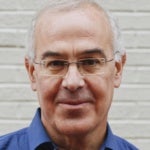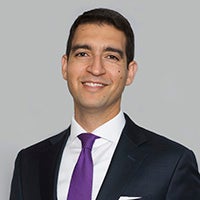COVID-19 is challenging that most primal of human instincts — to be together. We’re just a few weeks into physical isolation and many are feeling lonely, agitated, and afraid. Advances in technology and widespread access to broadband have offered novel ways to connect despite the physical distance (aside from the now ubiquitous Zoom) — from Love is Quarantine to TikTok cloud raves to virtual happy hours to QuarantineChat.
As the timeline for the pandemic drags on, what about the potential long-term effects? Is this type of interaction sustainable? How can we even measure and understand its impact? To what extent will this type of interaction change our understanding of what it means to be in a community and/or a society? This conversation explores the opportunities and challenges of technology as a cure for isolation.
“Not only alone together, but together alone.” – Sherry Turkle, MIT

David Brooks founded Weave: The Social Fabric Project at Aspen Institute in 2018 and is its chair. Weave aims to shift our culture from one that values achievement and individual success to one that finds value in deep relationships and community success. Brooks is a columnist for The New York Times and a regular commentator for PBS, NPR and NBC. He has written five books, including his most recent, The Second Mountain, a #1 New York Times bestseller.
 Mohamed Abdel-Kader is Executive Director of the Stevens Initiative at the Aspen Institute. He previously served in the administration of President Barack Obama as Deputy Assistant Secretary for International and Foreign Language Education at the US Department of Education’s Office of Postsecondary Education. Before joining the US Department of Education, Mohamed served as the Director of Development for the Edmund A. Walsh School of Foreign Service at Georgetown University and managed the university’s advancement strategy in the Middle East.
Mohamed Abdel-Kader is Executive Director of the Stevens Initiative at the Aspen Institute. He previously served in the administration of President Barack Obama as Deputy Assistant Secretary for International and Foreign Language Education at the US Department of Education’s Office of Postsecondary Education. Before joining the US Department of Education, Mohamed served as the Director of Development for the Edmund A. Walsh School of Foreign Service at Georgetown University and managed the university’s advancement strategy in the Middle East.
 Danielle Baskin is a product designer, multimedia artist, and serial entrepreneur who co-founded Dialup, a voice-based social network reinventing the phone call. Dialup’s most recent project is QuarantineChat which connects isolated people across the globe to talk on the phone. Danielle previously worked as a designer for the immersive theater company Odyssey Works, creating custom-tailored plays for an audience of one. She is currently based in the Bay Area where she organizes public spectacles like LineCon and Oracle OpenWorld—centered around serendipitous conversations between unexpecting strangers. She is also a painter and tarot reader.
Danielle Baskin is a product designer, multimedia artist, and serial entrepreneur who co-founded Dialup, a voice-based social network reinventing the phone call. Dialup’s most recent project is QuarantineChat which connects isolated people across the globe to talk on the phone. Danielle previously worked as a designer for the immersive theater company Odyssey Works, creating custom-tailored plays for an audience of one. She is currently based in the Bay Area where she organizes public spectacles like LineCon and Oracle OpenWorld—centered around serendipitous conversations between unexpecting strangers. She is also a painter and tarot reader.
 Vivian Schiller is Executive Director of Aspen Digital. Over the last 30 years, Vivian has held executive roles at some of the most respected media organization in the world. Those include: President and CEO of NPR; Global Chair of News at Twitter; General Manager of NYTimes.com; Chief Digital Office of NBC News; chief of the Discovery Times Channel, a joint venture of The New York Times and Discovery Communications; and head of CNN documentary and long form divisions. Documentaries and series produced under her auspices earned multiple honors, including three Peabody Awards, four Alfred I. DuPont-Columbia University Awards, and dozens of Emmys. Schiller is a member of the Council on Foreign Relations; and a Director of the Scott Trust, which owns The Guardian. She is also strategic advisor to Craig Newmark Philanthropies.
Vivian Schiller is Executive Director of Aspen Digital. Over the last 30 years, Vivian has held executive roles at some of the most respected media organization in the world. Those include: President and CEO of NPR; Global Chair of News at Twitter; General Manager of NYTimes.com; Chief Digital Office of NBC News; chief of the Discovery Times Channel, a joint venture of The New York Times and Discovery Communications; and head of CNN documentary and long form divisions. Documentaries and series produced under her auspices earned multiple honors, including three Peabody Awards, four Alfred I. DuPont-Columbia University Awards, and dozens of Emmys. Schiller is a member of the Council on Foreign Relations; and a Director of the Scott Trust, which owns The Guardian. She is also strategic advisor to Craig Newmark Philanthropies.

